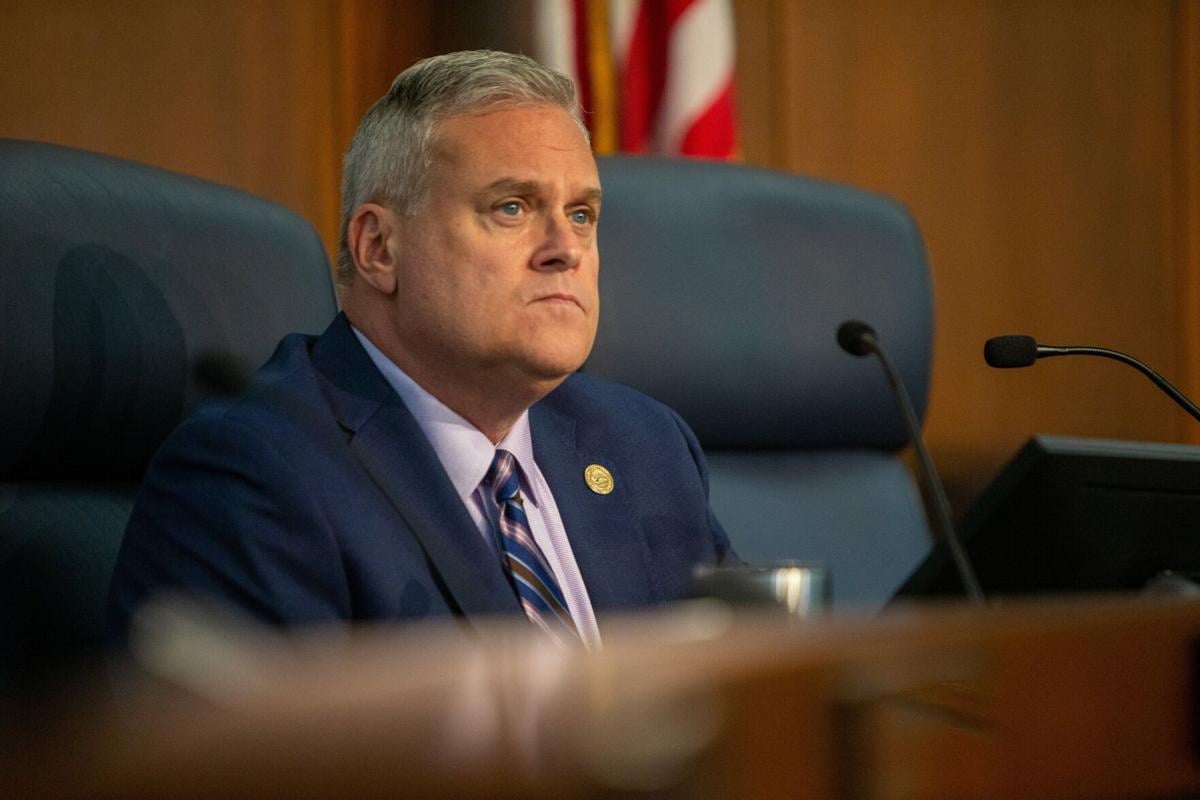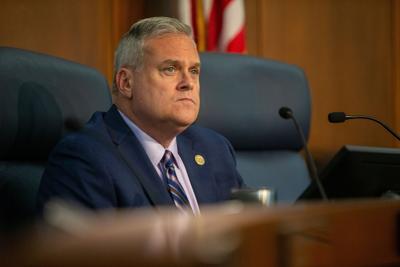The saga of Tim Fitch and his pension has a better ending than beginning.
On Thursday, ├█č┐┤½├Į County Circuit Court Judge Jeffrey Medler ordered the county to pay Fitch, a Republican county councilman, more than $245,000 in back pension payments earned while he was the countyŌĆÖs police chief. The payments had been withheld because of a law that says retirees who take a job with the county canŌĆÖt be paid retirement benefits at the same time they earn a salary. Council members are paid $20,000 a year.
ItŌĆÖs a fair result. Fitch earned his pension through public service. It seems a bit incongruous for a county to not want former police chiefs, or transportation directors, or health experts or other professionals who serve their county to have to make a huge financial sacrifice post-retirement to seek public office. Several current or former public officials in both parties in ├█č┐┤½├Į County have said they donŌĆÖt believe the law should apply to elected officials.
People are also reading…
But to understand what happened here, and put it in its context, itŌĆÖs important to go back to the beginning of the story. In 2018, when Fitch was running for the council seat he now holds, he knew he had a potential problem with his pension. We know that because he asked the councilwoman at the time, Colleen Wasinger, to file an ordinance to change the law.
Wasinger, who is an attorney, declined. So, when Fitch was elected, knowing he might lose his pension while serving on the council, he asked other council members to put forward a change in the law. Fitch knew he couldnŌĆÖt do it himself. Why? It would be a clear conflict of interest for a sitting council member to seek a change in the law to specifically benefit himself financially.
In early 2019 when this was happening, Sam Page, a Democrat, was chairman of the County Council. He had nothing to do with the decision to stop FitchŌĆÖs pension payments. That was a decision made by the countyŌĆÖs retirement board. But Page and his colleagues saw the same conflict in one of them seeking a change to the law on FitchŌĆÖs behalf as Fitch doing so himself. They declined to help him.
There was strong history in their favor. Two years earlier, before he was convicted of federal corruption charges, then-County Executive Steve Stenger had pushed through a measure to allow his close political ally, then- Prosecuting Attorney Robert P. McCulloch, to expand his retirement benefits. Later, the council, believing they had been duped by Stenger, rolled McCullochŌĆÖs benefits back to the original amount.
Fellow Republican Ernie Trakas was the most fervent in opposing a change in the law to benefit Fitch:
ŌĆ£Every member on the council and past members have put careers on hold, taken leaves of absence and in some cases left jobs ŌĆ” in order to serve,ŌĆØ Trakas said. ŌĆ£So, the idea that some special exception should be carved out is an affront to those who have done that.ŌĆØ
Regardless of what one thinks of the law that was on the books, and whether it was intended to apply to elected officials, as compared to other full-time employees paid a higher salary, Fitch was stuck. At the time, he threatened a lawsuit. ThatŌĆÖs exactly what he should do, I wrote, back in 2019: ŌĆ£Like a guy fighting a speeding ticket, Fitch can plead his case before a jury of his taxpaying peers.ŌĆØ
By the time Fitch filed his lawsuit, though, most folks had forgotten the back story. Instead, for some, this was just another battle between Page, who had become the county executive, and Fitch, his chief critic.
But this story ŌĆö unlike some others recently that hang around PageŌĆÖs neck like a political albatross ŌĆö never really had anything to do with him. There was a law on the books. Fitch, the former police chief, didnŌĆÖt think it should apply to him.
The proper resolution ŌĆö unless Fitch, a law-and-order kind of guy, wanted to be accused of political corruption ŌĆö was always going to be in the courts. Now that heŌĆÖs got his pension (assuming the county doesnŌĆÖt appeal), thereŌĆÖs no longer a conflict of interest for Fitch to put forward a proposal to clarify the law so it is clear in the future who it does or does not apply to.
That would make for a fine ending to this saga. Who knows? The county executive and former police chief might even end up on the same page.

















